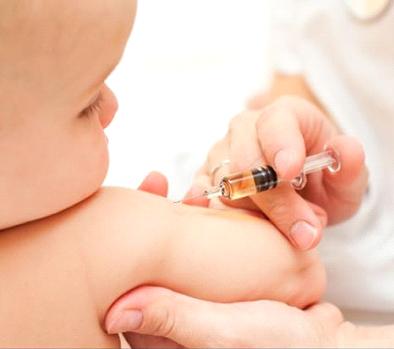Rubella Symptoms, Causes, Diagnosis and Treatment

What Is Rubella?
It is a transmittable viral infection characterized by its idiosyncratic red rash. It is different from measles; however the two tend to share few traits including the reddish-pinkish rashes. Though, measles is triggered by a different virus and is more severe and infectious than rubella.
Fortunately, rubella is preventable. Children are advice to take its vaccine, called MMR, in order to prevent rubella.
What Are The Other Names Of Rubella?
Rubella is also known by the following names:
- Three-day measles.
- German measles.
What Causes Rubella?
A virus is responsible for causing rubella, which is transmitted from an individual to another. The virus spreads when someone with rubella sneezes or coughs, or through his or her respiratory secretions.
An unborn child is prone to get infected if the mother is suffering from it, through the bloodstream. The condition is known as congenital rubella syndrome, CRS.
What Are The Symptoms Of Rubella?
Usually, its symptoms are mild enough to become noticeable, particularly in children. However; if the symptoms do appear, they get obvious in 2-3 weeks after being exposed to the virus responsible for causing rubella. Moreover, the symptoms persist for 2-3 days, and can include:
- Headache.
- Mild fever.
- Runny or stuffy nose.
- Red, inflamed eyes.
- Pink, fine rashes which start to emerge on your face. Rapidly these rashes spread to your trunk. They may then appear on your legs and arms. After completing the due course, these rashes tend to fade away in the similar sequence.
- Tender, enlarged lymph nodes.
- Aching joints, particularly in young females.
What Are The Complications Of Rubella?
The chances of complications tend to increase for the unborn baby in case the mother gets infected with rubella during her pregnancy. Complications can be:
- Stillbirth.
- Miscarriage.
- Birth defects.
How Is Rubella Diagnosed?
Rashes associated with rubella can resemble with the rashes of other viral infection. Therefore, in order to confirm its diagnosis, the doctor will conduct lab tests. Specifically, one may has a blood test or a viral culture, as these tend to help identify the presence of rubella antibodies present in the blood.
How Is Rubella Treated?
Clearly, no treatment helps to reduce its course of infection, though the symptoms of rubella are so mild, that you may not feel the need of treatment. Doctors usually suggest isolation from people in the family and friends, particularly from the pregnant women, throughout the period of infection.
In case you are pregnant and have contracted rubella, immediately call up for an appointment with your gynecologist. Discuss the chances of rubella to your baby. For the purpose, your doctor will prescribe you the antibodies named hyperimmune globulin, which will help your body fight against the infection. In addition to this, this will also ease the symptoms, however does not completely eradicate the likelihood of the unborn baby to develop CRS.
What Is The Prognosis Of Rubella?
It is a mild infection, after being infected; one becomes immune to rubella for his or her entire life.
By : Natural Health News




